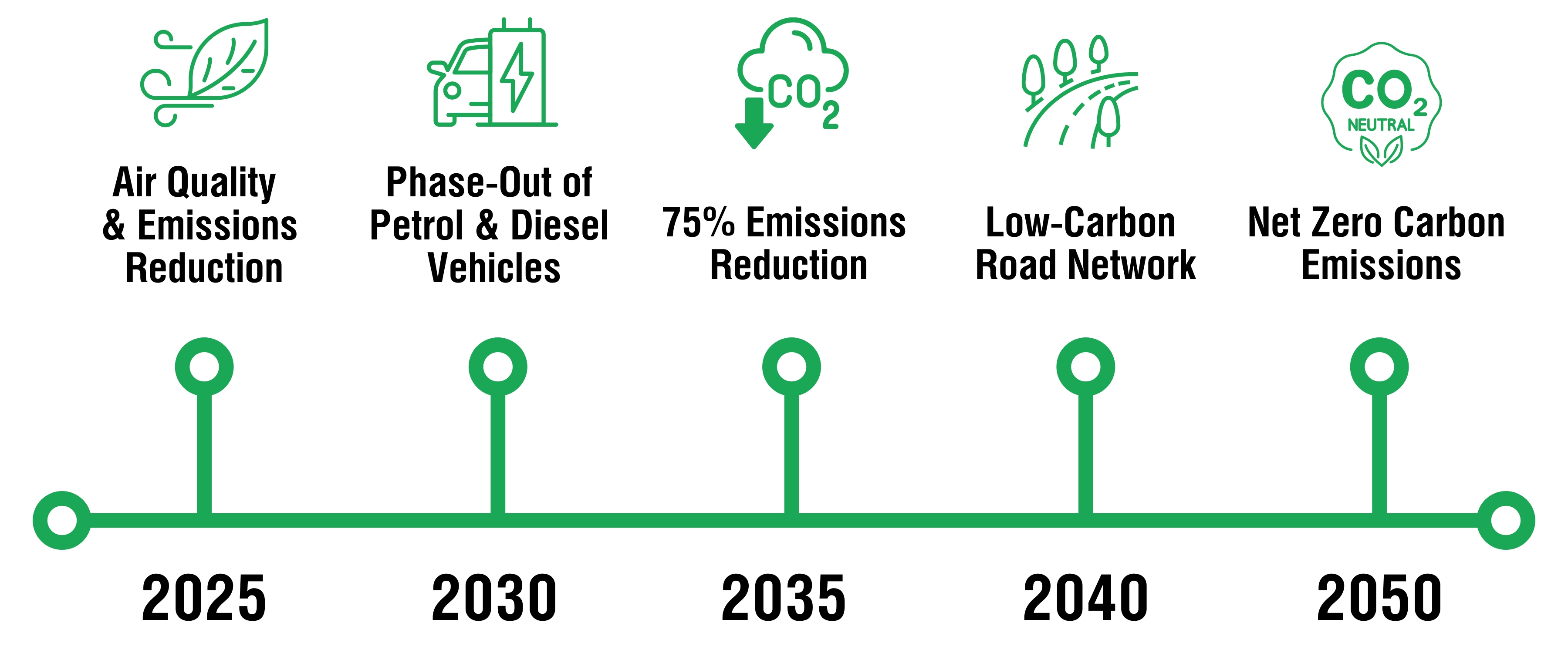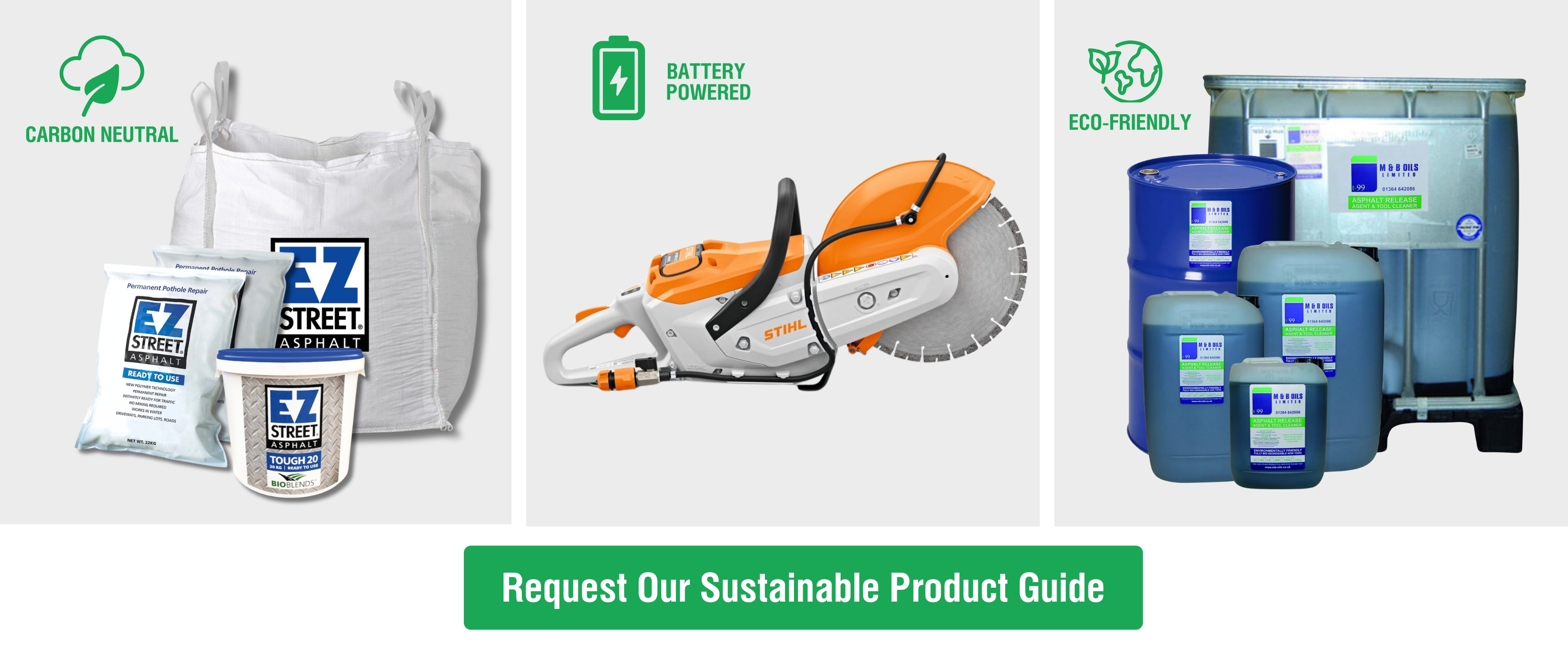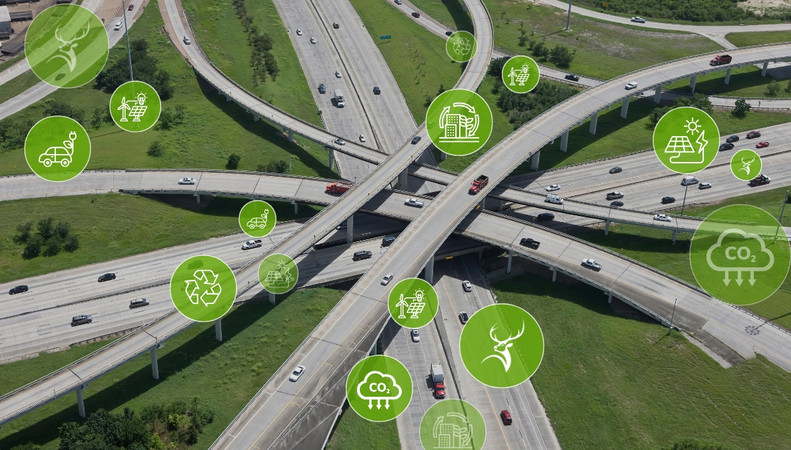The Roadmap To Net Zero
How small changes can make a big difference.
Local authorities, highways and civil engineering businesses play a crucial role in achieving the UK's sustainability targets for road infrastructure. Below are several active steps they can take to align with the planned government goals to achieve carbon neutrality by 2050.

Implementing Carbon Neutral Materials
Adopt Carbon-Neutral Products: Use materials like Red Stag Materials’ EZ Street asphalt, which offers a carbon-neutral option for pothole repairs and road maintenance.
Bulk Buy: Eliminate the need for excess packaging by using products that can be stockpiled.
Electrifying Fleets and Equipment
Transition to Electric and Low-Emission Vehicles: Replace diesel-fueled vehicles with electric alternatives for transportation and maintenance crews to reduce carbon emissions.
Utilise Electric and Hydrogen-Powered Equipment: Invest in or lease battery powered, electric or hydrogen-powered construction equipment to lower the carbon footprint on construction sites and reduce local air pollution.
Prioritising Preventative and Predictive Maintenance
Implement Predictive Maintenance Strategies: Identify early signs of road wear or damage, such as potholes, allowing timely repairs that prevent larger issues and reduce material usage.
Use Long-Lasting Materials for Repairs: Apply durable solutions like high-performance, permanent asphalt and overbanding products that extend the lifespan of roads, reducing the frequency and carbon footprint of repairs.
Improving Traffic Flow and Reducing Congestion
Install Smart Traffic Systems: Implement adaptive traffic lights, vehicle detection systems, and real-time monitoring to reduce congestion, which lowers emissions from idling vehicles.
Promote Active Transport and Public Transit Use: Support infrastructure for walking, cycling, and public transport near roads to reduce car dependency.
Supporting EV Charging Infrastructure Expansion
Install EV Charging Points in Key Locations: Work with utility providers to install EV charging stations along roads, parking lots, and service areas to encourage electric vehicle use.
Integrate Charging with Roadworks Projects: When performing upgrades or new builds, incorporate EV charging infrastructure into plans to streamline costs and reduce the need for future alterations.
Adapting Roads for Climate Resilience
Design Roads for Flood Resistance and Extreme Weather: Use materials and designs that withstand high temperatures, heavy rainfall, and flooding, extending the life of roads and reducing long-term maintenance needs.
Create Green Infrastructure: Install bioswales, permeable pavements, and green spaces alongside roads to manage stormwater and reduce surface runoff, supporting biodiversity.
Engaging in Partnerships and Training
Collaborate with Sustainability Experts and Suppliers: Partner with organisations specialising in sustainable materials, smart technology, and construction practices to align with government targets.
Train Staff in Sustainability Practices: Offer regular training to staff on sustainable construction, maintenance practices, and carbon reduction strategies, empowering teams to apply eco-friendly methods onsite.
Regular Sustainability Reporting and Target Setting
Track Emissions and Resource Use: Use carbon accounting software to monitor emissions from projects and track the use of sustainable materials.
Set Incremental Targets: Establish specific sustainability goals aligned with national targets, such as yearly reductions in emissions, waste, and water use, and report progress transparently.
By integrating these practices, local authorities and businesses can meaningfully contribute to the UK’s sustainability goals, reduce their operational impacts, and build a more resilient road infrastructure for the future.
Red Stag Materials aims to reduce the burden of responsibility by supporting the industry with easy access to eco-friendly materials that help achieve the UK's sustainability goals.


